How To Raise Chickens: An Easy-To-Follow Guide For Beginners
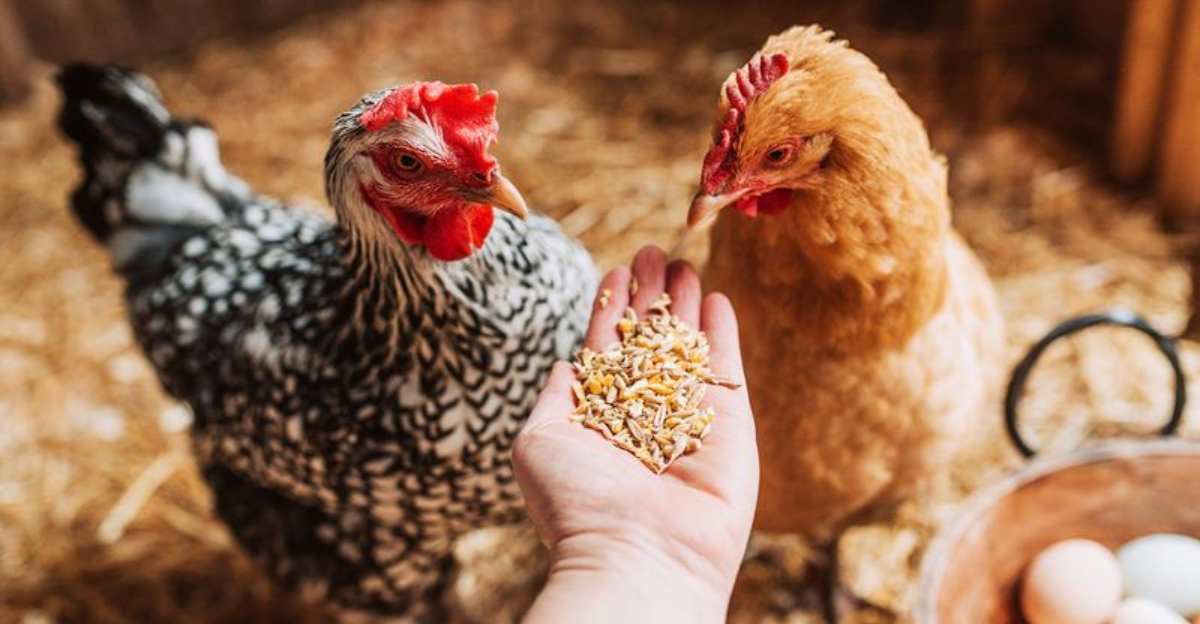
Raising chickens is not merely a pastime for the seasoned farmer; it’s an adventure that beginners can embark on with gusto and little prior knowledge.
Picture this: your backyard bustling with clucking hens, fresh eggs gathered every morning, and the satisfaction of sustainable living in the palm of your hands.
Whether you’re dreaming of a homestead or just a few feathered friends, these ten tips will guide you through the exhilarating journey of raising chickens.
Each tip is crafted to ensure that you not only succeed in raising happy and healthy chickens but also enjoy every moment of it.
1. Choosing The Right Breed

Selecting the right chicken breed is like choosing the perfect pet, with each breed offering unique traits that cater to different needs. Rhode Island Reds are hardy and great layers, while Silkies charm with their fluffy feathers and calm demeanor. Consider your climate; Leghorns thrive in warmth, whereas Orpingtons handle the cold.
Think about your egg expectations. Do you want an abundance of eggs or just a handful weekly? Breeds like the Australorp lay prolifically, while Araucanas offer beautiful blue eggs. Your choice impacts not just egg production, but also the chicken’s adaptability to your environment.
Understanding these nuances helps you build a flock that not only serves your needs but also thrives in your care. It’s a delightful puzzle – one you’ll enjoy solving as you bring the right personalities into your coop.
2. Building A Comfortable Coop
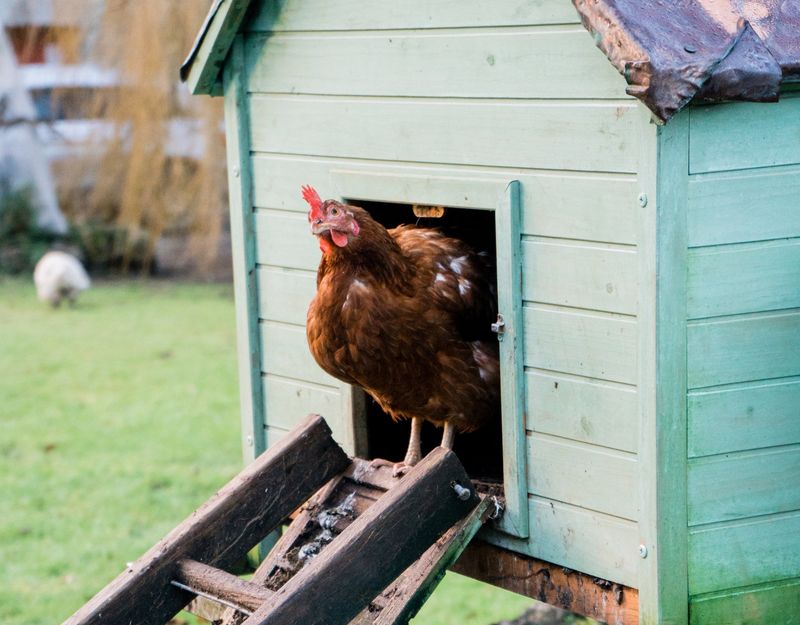
A comfortable coop is the cornerstone of chicken happiness. Imagine a tiny home where your chickens roam freely, lay eggs, and sleep safely. The coop must be spacious, with at least 4 square feet per bird. Include perches for roosting, nesting boxes for egg-laying, and adequate ventilation to ensure fresh air circulation.
Security is paramount; nothing disrupts a night’s rest like a predator lurking nearby. Reinforce your coop with strong wire mesh and secure locks. The location is crucial too – place it in a shaded area to shield from extreme weather while keeping it dry.
A well-built coop not only protects from the elements but also encourages natural behaviors, promoting a healthy and productive flock. This sanctuary will become a cherished part of your garden, bustling with life and the promise of fresh eggs daily.
3. Feeding Your Flock Properly
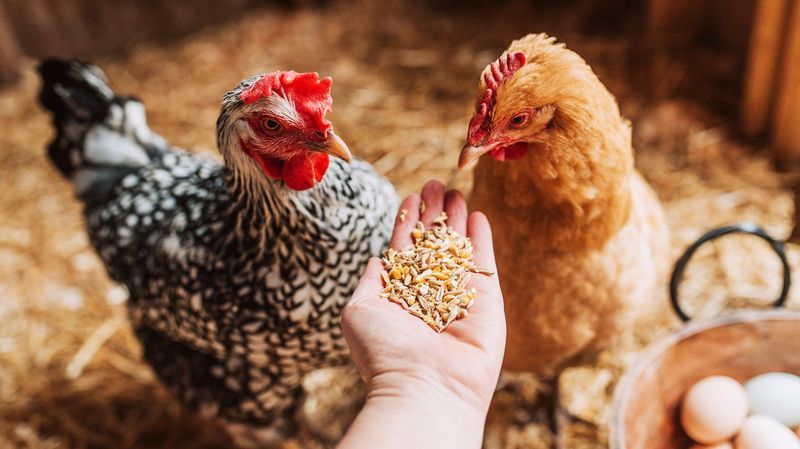
Feeding your flock is an art and science, balancing nutrition with taste. Chickens require a diet rich in proteins, calcium, and other essential nutrients to lay eggs and maintain health. Commercial feeds often provide a balanced diet, but supplementing with kitchen scraps and grains can add variety.
Calcium is crucial for eggshell strength, so include oyster shells or limestone grit. Fresh water is indispensable – change it daily to ensure cleanliness. Watch their behavior; a pecking order can dominate feeding times, so ensure all chickens get their share.
A well-fed chicken is a happy chicken, and you’ll notice the difference in their plumage and egg production. As you become more attuned to their needs, feeding time becomes a joyous routine, filled with clucks of gratitude and the rewarding sight of your thriving flock.
4. Ensuring Health And Hygiene

Maintaining health and hygiene is the backbone of successful chicken raising. Regular checks for parasites like mites and lice can prevent distress and disease. Dust baths are a chicken’s natural way to stay clean – provide a box with sand and diatomaceous earth for their grooming pleasure.
Vaccinations and deworming schedules are critical, and consulting a vet ensures you’re on the right track. Cleanliness matters; a clean coop minimizes bacteria and odors that can lead to infections.
Keep an eye on their behavior; lethargy or loss of appetite often signals something amiss. With keen observation and a proactive approach, you’ll cultivate a flock that radiates vitality and contentment, rewarding you with both companionship and nutritious eggs.
5. Managing Space And Free Range
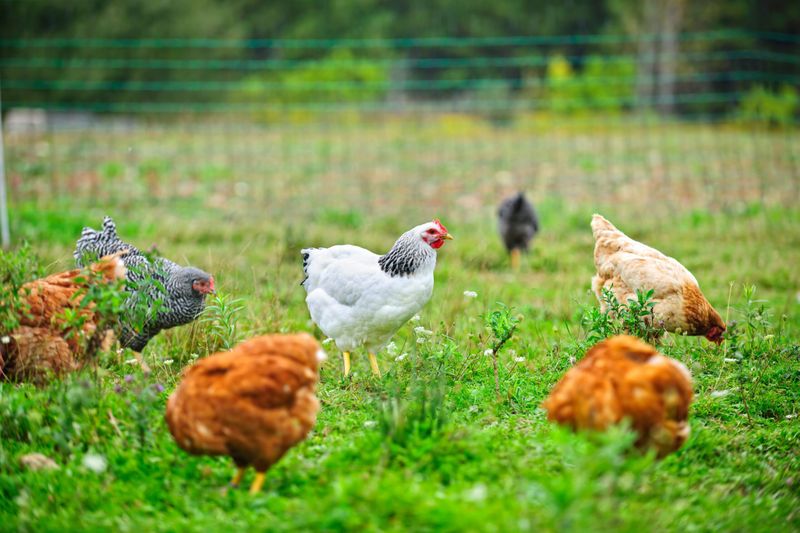
Space management is essential to a harmonious chicken life. Each chicken needs room to stretch, scratch, and explore. Allocate 10 square feet per chicken in their outdoor space to prevent stress and bullying. Allowing them to free range, even in a limited area, enhances their quality of life.
Fencing is crucial for protection from predators while setting boundaries. Remember, happier chickens lay better eggs, so observing them frolic freely is a pleasure for the eyes and soul.
Design your space with variety – grassy areas for foraging, shaded spots for resting, and a dust bath zone. This mix encourages natural behaviors, making your backyard a haven of chicken joy. With thoughtful planning, you’ll create a vibrant ecosystem where chickens and humans coexist delightfully.
6. Understanding Chicken Behavior
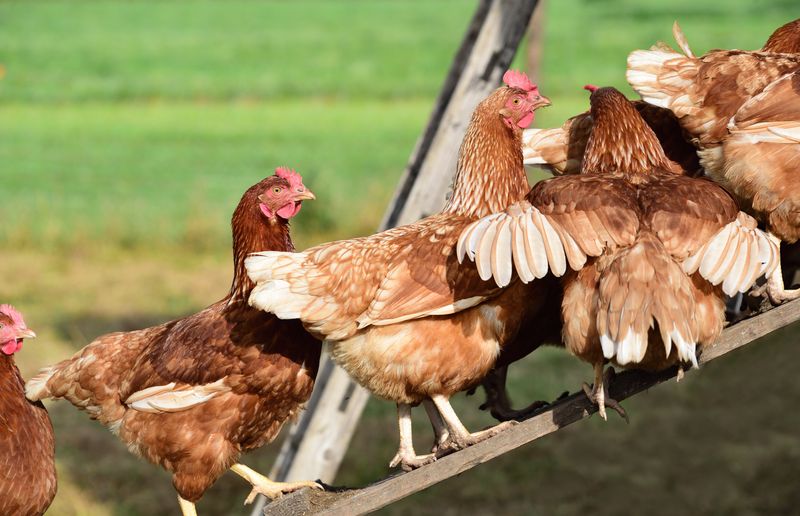
Understanding chicken behavior transforms your flock from a mere group of birds into a dynamic community. Chickens communicate through a complex array of clucks, body language, and even dance. Recognizing the pecking order helps manage introductions of new hens smoothly.
Chickens are curious and intelligent; they enjoy enrichment activities like pecking at swinging vegetables. Paying attention to their behavior deepens the bond between you and your flock.
Behavioral cues also indicate health – a listless chicken may need attention. By observing their dynamics, you’ll discover personalities and preferences, turning chicken raising into a delightful narrative of discovery and interaction. This understanding enriches your experience, ensuring that each day spent with your flock is full of charm and learning.
7. Handling Weather Challenges
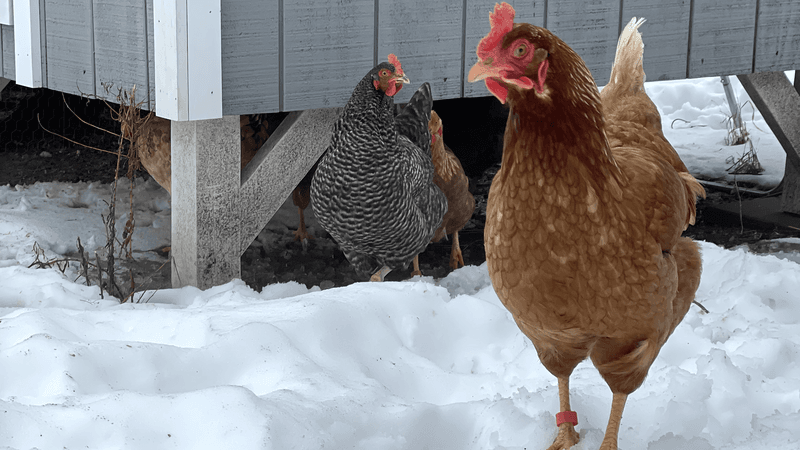
Weather challenges can be daunting, but they are manageable with preparation. Chickens are hardy, yet extreme conditions require extra care. In winter, insulate the coop and ensure water doesn’t freeze. Provide additional bedding for warmth and consider supplemental lighting to maintain egg production.
Summer heat demands shade and constant hydration to prevent heat stress. Offer frozen treats and ensure ventilation in the coop. Weatherproofing isn’t just about comfort but survival, impacting their well-being significantly.
By adapting your care routine to the seasons, you’ll ensure your chickens thrive regardless of weather extremes, making you a proud guardian of a resilient flock. The reward is witnessing their resilience and adaptability, strengthening your bond and enhancing your chicken-raising journey.
8. Dealing With Pests And Predators
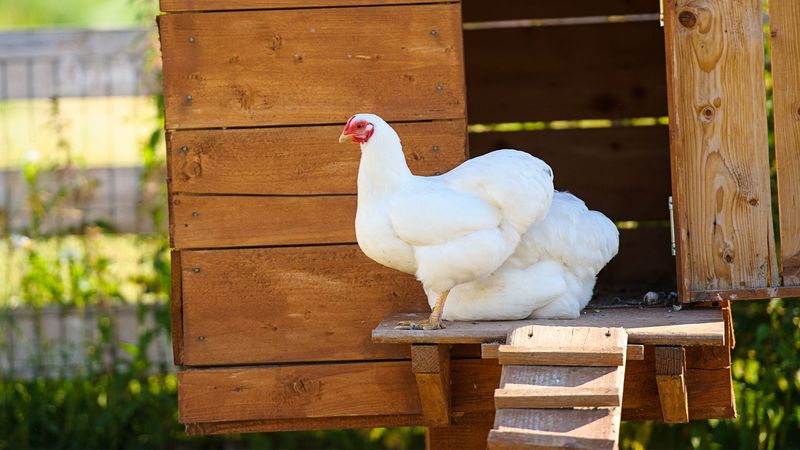
Pests and predators are inevitable challenges, but they can be managed with vigilance and strategy. A secure coop is your first line of defense – use hardware cloth to fortify against raccoons and foxes. Roosters can act as natural alarms, alerting you to aerial threats like hawks.
Regularly inspect the perimeter for signs of burrowing animals and reinforce weak spots. Reduce rodent attractions by storing feed securely. A multi-layered approach ensures the safety of your flock.
Understanding the local wildlife and their habits enables you to anticipate and mitigate risks effectively. With proactive measures, you’ll protect your chickens, ensuring they live in a safe and harmonious environment. This preparedness transforms potential threats into manageable hurdles, securing peace for both you and your flock.
9. Egg Collection And Storage
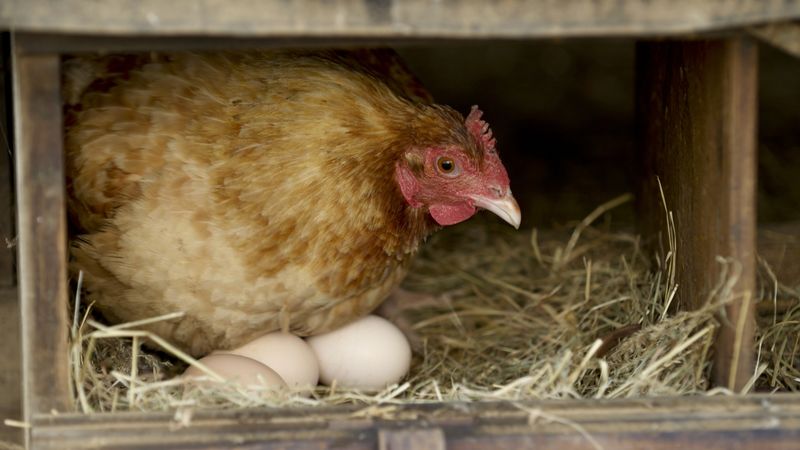
Collecting eggs is a daily delight that links you directly to the fruits of your labor. Gather eggs daily to prevent breakage and encourage laying. Use a gentle touch – eggs are delicate treasures. Fresh eggs can be stored unwashed for up to a week at room temperature, or longer in the refrigerator.
Mark the date of collection for rotation, ensuring you enjoy the freshest eggs first. Encourage laying by keeping nesting boxes clean and comfortable, as hens prefer a serene space for egg-laying.
This routine not only provides sustenance but also deepens your connection to the life cycle of your flock. Each egg collected is a testament to your care, turning a simple task into a fulfilling daily ritual that enriches your family table and spirit.
10. Legal Considerations And Community
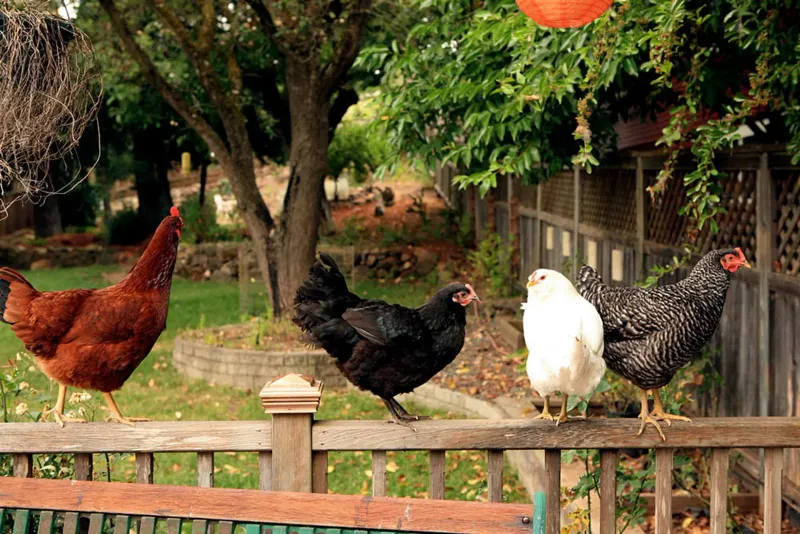
Before embarking on your chicken-raising journey, familiarize yourself with local regulations. Some areas have restrictions on the number of chickens or ban roosters. Compliance avoids fines and ensures harmony with neighbors.
Engage with your community; share eggs and knowledge. Join local forums or clubs to exchange tips and experiences. Building relationships can offer support and camaraderie in your chicken-raising efforts.
Communication fosters understanding, dispelling myths and concerns about backyard chickens. By integrating your flock into the community, you not only enrich your life but also contribute positively to your neighborhood. These connections become a foundation of support and joy, enhancing the overall experience of raising chickens.






